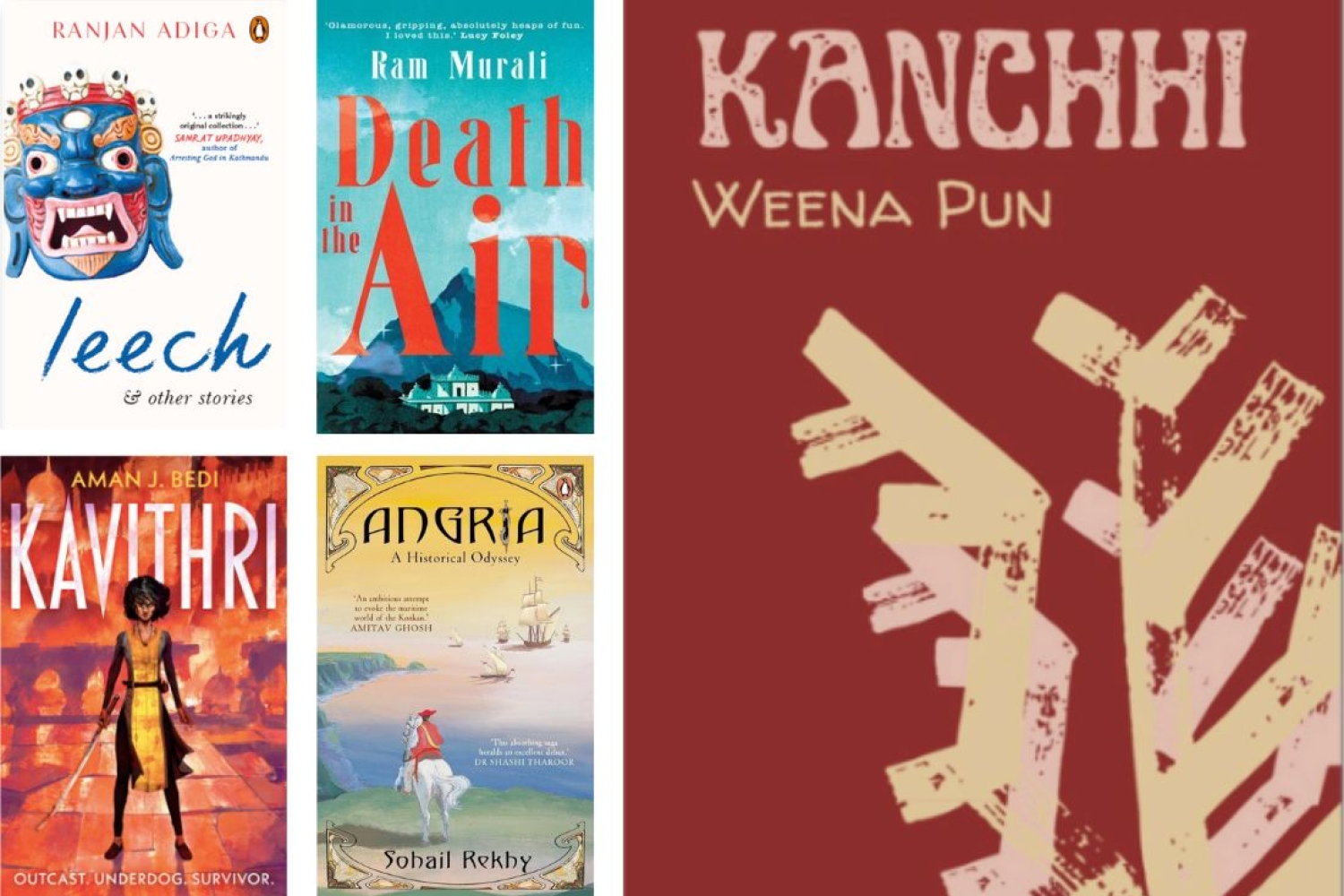

Get an exciting glimpse of the 2024 literary debuts to emerge in India. From poignant coming-of-age tales to gripping thrillers and insightful non-fiction narratives, these debut works showcase the diversity and talent of contemporary writers.
Angria by Sohail Rekhy
An astounding debut seeped in the waves of the Konkan, Angria is the tale of Kanhoji Angre, one of history's most feared sea commanders and the pride of the Maratha Empire. Amid the smell of gunpowder and the crust of salt, debut novelist Sohail Rekhy brings to life a momentous era when the war for Swaraj was fought on the seas of India, and when only one man stood between the ferangis and the Desha. Drawing from Marathi bhakars from the 18th and 19th centuries, this is the story of a man whose courage made him feared, a king who controlled almost all of the Konkan, and a hero whose story has been lost to the waves of time.
Leech by Ranjan Adiga
An exciting new South Asian voice in fiction, Leech is Nepali-American writer Ranjan Adiga’s debut collection of short stories that deal with all the themes that have resonate among immigrants of South Asian origin: those of stereotyping, apprehensions about climbing social ladders, racial segregation, and cultural displacement. Characters of Nepali origin litter the stories that bring Nepal to the forefront, a country steeped in religious hegemony, patriarchal beliefs, economics disparity and high trends of immigration. Ultimately, Adiga wants to tell the story of being ‘brown’ in contemporary America.
Summer of Then by Rupleena Bose
Summer of Then is a debut novel that relishes the interiority of women, especially about the often-unsettling intimacies of relationships, both sexual, romantic, and platonic, set against the trauma of sexual assault and harassment. Set across Calcutta, Delhi, Mumbai, and even Edinburgh, UK, this coming-of-age novel crosses paths with the India of the 2010s, exploring the trickle-down effect of the nationalist politics of right wing into academia and college life in Indian metropolitan cities, leading us just to the point of the incipient anxieties and beginnings of the 2020 pandemic.
In the vein of Sally Rooney’s Normal People, Otessa Moshfegh’s My Year of Rest and Relaxation, and Avni Doshi’s Burnt Sugar, the novel’s protagonist has a sparse, yet deeply compelling voice that pays attention to vivid and precise emotional and social detail, exposing a range of motion between observational commentary and introspection.
A Firestorm in Paradise by Rana Safvi
This is Rana Safvi’s new historical fiction set during the tense build-up to the 1857 Uprising. The novel pays homage to a forgotten Delhi, or Shahjahanabad and celebrates the scintillating, sophisticated culture that was nurtured by the Mughals. At the center of this sprawling narrative is a princess, Falak Ara, daughter of Emperor Bahadur Shah Zafar. Beautiful and vivacious, Falak Ara is curious about the world outside the palace but never imagines being able to leave. All this is going to change for her, unforeseen calamity lurks on the horizon, and the city that she calls her home, will change forever.
Death in the Air by Ram Murali
Death in the Air is a provocative locked-room mystery and a literary whodunit for the 21st century—think Crazy Rich Asians meets Knives Out, written by a lover of Agatha Christie. Ro Krishna, a lawyer by training and a sleuth by circumstance, becomes embroiled in a vicious cycle of tensions between haves and have-nots, East and West, guided by forces beyond his ken—karma, perhaps?—toward a resolution that may well save the soul of India itself. In the questions it raises about race, representation, appropriation, and immigration—and in some of the discomfiting answers the book ultimately offers—the novel speaks to our moment in a way few novels trafficking in genre conventions do.
Kavithri by Aman J. Bedi
Action-packed and empowering, Kavithri is a South Asian epic fantasy that delivers a twisted narrative reminiscent of The Unbroken, The Poppy War, and Gideon the Ninth. Kavi is a Taemu, a member of a once-feared warrior caste now relegated to the lowest rungs of Raayan society. Crushed by the weight of history and oppression, her people's spirits are shattered, their swords broken, and their legacy erased.
But Kavi refuses to surrender to despair. With a dream burning bright in her heart and a daring plan in mind, she is determined to earn her place at the elusive mage academy. There, amidst the shadows of secrets and the whispers of Jinn, she seeks the power to transcend her humble origins and lead her people out of darkness.
Kanchhi by Weena Pun
Kanchhi by Weena Pun is a lyrical and heart-stopping literary debut from the Nepali-origin author. With masterful storytelling strokes, Pun traces the consequences of a woman daring to overturn society’s expectations. Atmospheric, tragic, and deeply resonant with the times, Kanchhi evokes parallels to Farah Bashir’s Rumours of Spring and Madhuri Vijay’s The Far Field.
No Place to Call my Own by Alina Gurfran
This debut novel explores what it means to be a young Muslim South Asian woman today. It pivots around Sophia, the narrator, whose reckless but bold journey across her twenties coincides with the rise of theocracy in 21st-century India, eerily mirrored in the disintegration of her own parents’ interfaith marriage. And crucial to Sophia’s journey—which unfolds against the backdrop of the #MeToo movement, the 2020 Delhi riots and a global pandemic—is her prickly, complicated friendship with Medha, a queer artist with travails of her own.
Words Platform Desk
Date 12.03.2024